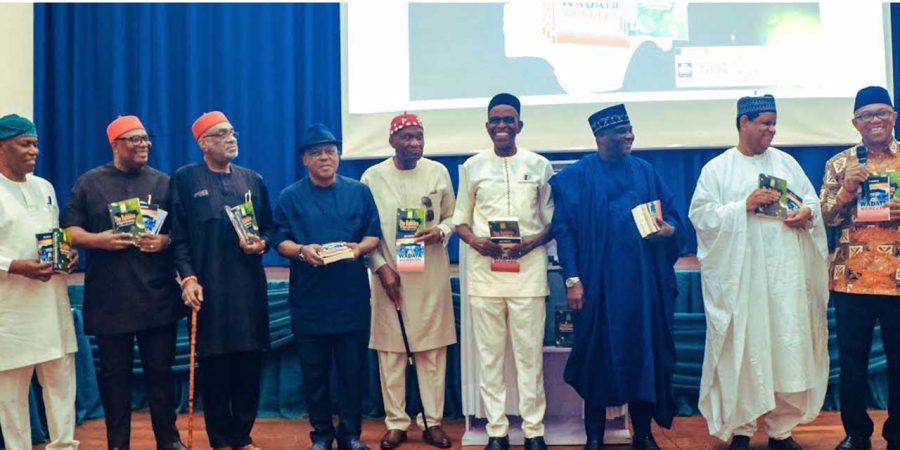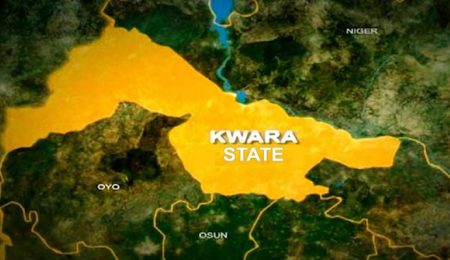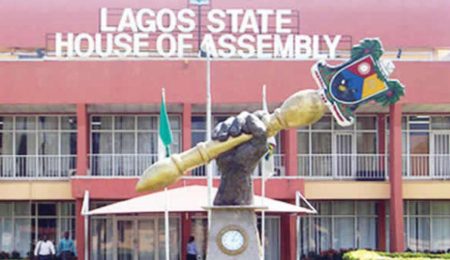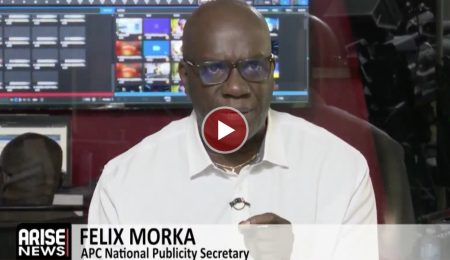Former President-General of Ohanaeze Ndigbo, Chief Nnia Nwodo, has called for immediate restructuring of the country, saying the country must restructure, or the different components should be allowed to go their separate ways.
Nwodo spoke at a book launch in Abuja, where the former national chairman of Peoples Democratic Party (PDP), Uche Secondus, also lamented the fate of democracy in Nigeria, and said the country was on the verge of liquidation due to threats of one party system.
In a keynote address at the launch of, “The Bubbles of Nigeria’s Democracy: The Musings of a Nigerian Journalist,” and, “WadataWonders: Memoirs of a Partisan Journalist,” two books written by a former staff of THISDAY, Ike Abonye, the former information minister said Nigeria must restructure to survive.
In the speech, titled, “How Did We Here,” Nwodo said, “Nigeria must restructure and give its component units sovereignty over its natural resources provided they pay royalty or some form of taxation to the federal government to maintain federal responsibilities, like external defence, foreign missions, customs, and immigration.
“In this way, true democracy will evolve and the speed of development increased.”
He said, “Emphasis must return to agriculture and education. Education must emphasise on renascent digital orientation. “Domestic security must remain in the hands of the federating units; the secularity of the Nigerian state must be respected.
“These irreducible minimum conditions are not negotiable. If it does not happen, we will have no alternative but to go our separate ways. Processes to begin our restructuring as a nation must be concluded before the 2027 elections.”
Lamenting the declining fortunes of Nigeria, the former Minister of Information said, “According to the UN World Population Prospects (WPP) 2025 report, Nigeria has the lowest life expectancy in the world, with an average life expectancy of 54.8 years (54.5 for males and 55.1 for females) Nigeria ranks below countries like Chad, South Sudan and Central African Republic in life expectancy.”
Nwodo stated, “Writing on Nigeria’s population in his ‘My thoughts on Nigeria’, President Jonathan wrote, ‘with such a large and teeming population, a number of challenges abound, particularly keeping as low as possible infant mortality and overall human morbidity through well-coordinated health and sanitation facilities.’
“In April 28, 2025, writing on, ‘Nigeria’s bad roads are taking a toll on our economy,’ Babatunde Yusuf of BusinessDay wrote: ‘Drive anywhere in Nigeria and it won’t take you long to find evidence of a broken system!’
“Cracked right ways, cratered city streets, and rural roads that are somehow impassable. For decades, the conversation around bad roads has centred on inconvenience and traffic. But there’s a cheaper and less talked about consequence, and this is the toll these bad roads are taking on our economy and security.”
He said road transportation was the backbone of commerce in Nigeria and 90 per cent of goods and passengers were moved by roads, according to the National Bureau of Statistics
“Yet many of these roads are in poor condition, making delivery times slow, increasing fuel costs, and the lifespan of vehicles drop dramatically. So who pays for this inefficiency?” Nwodo asked.
He explained, “The consumers, business owners, and the government – all lose in different ways, albeit.
“A 2022 report by the World Bank estimated that Nigeria loses about $1 billion annually due to poor road infrastructure.
“This includes losses from increased travel times, higher vehicle operating costs, and goods damaged in transit. Can a developing economy afford such a loss year after year? Especially when capital budgets are shrinking and inflation is rising? The answer is clearly No.
“As at December 2024, Nigeria’s public debt stood at $94 billion (N144.7 trillion). Since President Tinubu assumed office in 2023, public debt has jumped by 65.6 per cent. A fresh $24 billion borrowing, which is on offer, may balloon Nigeria’s debt to N183 trillion.
“Let’s even consider the agricultural sector. Farmers in Benue or Taraba, when Boko Haram bandits allow them, often struggle to get their produce to markets in Lagos and Port Harcourt due to inaccessible rural roads. And the result is definitely food waste.
“The Nigerian Stored Products Institute even estimates that up to 40 per cent of food produced in the country never reaches the final consumer largely due to transportation and logistics challenges. Isn’t this concerning for a country not free from food shortages? In urban areas, the economic cost translates to loss of productivity.”
On his part, Secondus lamented the loss of confidence in the democratic development of Nigeria.
He said democracy in Nigeria, under Tinubu, was threatened by the push for a one party system by the All Progressives Congress (APC) government.
Secondus called for the entrenchment of democracy, as was the case in South Africa, which built the African National Congress (ANC), where no one was seen to be above the political parties.
The former national chairman of PDP said there was no political parties in Nigeria, stressing that what exists are platforms to get elected into political offices.
He stated, “Where we allow what is happening in Nigeria to continue, democracy and democratic processes are on the verge of liquidation under President Bola Tinubu administration.
“What we have in Nigeria is nothing but political chain command. This ought not be so. There should be freedom of political information. What we have now is political propaganda. We are just a nation in political wilderness looking for where we can settle down.”
Secondus explained that there should be plurality of information and ideas, as no one could solve the challenges in the country alone.
Former Anambra State Governor, Peter Obi, also attended the book presentation.
Obi’s appearance at the Shehu Musa Yar’Adua Centre, where PDP stalwarts gathered for the unveiling, came on the heels of confirmed efforts by PDP to woo Obi back into the party ahead of the 2027 general election.
Chuks Okocha
Follow us on:



